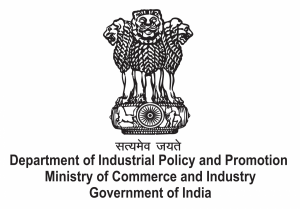In this blog post, Nimisha Srivastava, a student of Gujarat National Law University, Gandhinagar, discusses the policy framework of Foreign Direct Investment in India.
With the emergence of Multi National Corporations (MNCs), the economies of the world have become more liberalized. Governments of countries around the world started adopting measures and policies to attract these MNCs, and increased private capital flows in form of Foreign Direct Investment (FDI). Through the method of FDI, countries raise funds from abroad, which is a crucial thing for the growth of a developing economy like India. Information technology helps in achieving technical know-how and generating employment.
Foreign companies have the advantage of getting lower wage rates, tax exemptions, etc. when they invest in India. Indian government has taken numerous steps to encourage a favourable policy regime for foreign investor to come.
Framework
The Foreign Exchange Management Act, 1999, was enacted with the objective to consolidate and amend the law relating to foreign exchange with the objective of facilitating external trade and payments and for promoting the orderly development and maintenance of foreign exchange market in India. FDI in India is governed by Section 6(3) of the FEMA read with Notification No. FEMA 20/2000-RB dated May 3, 2000, as amended from time to time.
The policy framework of FDI is embodied in Circular on Consolidated FDI Policy, updated annually. Further, the Department of Industrial Policy and Promotion (DIPP), Ministry of Commerce & Industry, Government of India makes policy pronouncements on FDI notified by the Reserve Bank of India as amendments to the Foreign Exchange Management (Transfer or Issue of Security by Persons Resident Outside India) Regulations, 2000 (notification No.FEMA 20/2000-RB dated May 3, 2000). In case of any conflict, the relevant FEMA Notification will prevail. The procedural instructions are issued by the Reserve Bank of India vide A.P. (DIR Series) Circulars. The regulatory framework, over a period of time, thus, consists of Acts, Regulations, Press Notes, Press Releases, Clarifications, etc.
Sectors where FDI is not permitted
Gambling, betting, lottery, chit fund, Nidhi Company[1], housing and real estate[2], agriculture[3], manufacturing cigars, cheroots, cigarillos and cigarettes, trading in Transferable Development Rights (TDRs), activities/sectors, are not open to private sector investment.
Procedure for receiving FDI by an Indian Company
There are two methods by which an Indian company can receive FDI.
- Automatic Route: No prior approval of government or RBI is required.
- Government Route: The approval of Foreign Investment Promotion Board (FIPB), Department of Economic Affairs, Ministry of Finance is required. Application can be made in Form FC-IL. Plain paper applications carrying all relevant details are also accepted. No fee is payable. Government approvals are required where:
- a) Indian company established with foreign investment is not owned or controlled by resident entity,
- b) Control/ownership of existing company is being transferred to non resident entity.
Who is eligible to invest in India?
Any resident/entity outside India, NRIs resident in Bhutan and Nepal, citizens of Nepal and Bhutan, a company, trust and partnership firm incorporated outside India and owned and controlled by NRIs, Overseas Corporate Bodies (OCBs incorporated outside India and not under adverse notice of RBI). However, citizen/entity of Bangladesh can invest only under Government route and a citizen/entity of Pakistan can invest, only under the Government route, in sectors/activities other than defence, space and atomic energy.
(i) Foreign Institutional Investor (FII) and Foreign Portfolio Investors (FPI) (registered under FEMA (Transfer or Issue of Security by Persons Resident Outside India) Regulations, invest in the capital of an Indian company under the Portfolio Investment Scheme which limits the individual holding of an FII/FPI below 10% of the capital and the aggregate limit for FII/FPI investment to 24% of the capital. This aggregate limit of 24% can be increased to the sectoral cap/statutory ceiling, as applicable, by the Indian company concerned through a resolution by its Board of Directors followed by a special resolution to that effect by its General Body and subject to prior intimation to RBI.
Investee
Indian companies, Partnership Firm/Proprietary Concern (not engaged in agriculture, plantation, real estate), Trusts, LLPs (where 100% FDI is allowed through automatic route, without any conditions), investment vehicle.
Types of instruments
Indian companies can issue following type of securities: equity shares, fully and mandatorily convertible debentures/preference shares, optionally convertible, partially convertible, non-convertible shares.
Optionally clauses enable the investor to exit without any assured return by obliging buyback of securities from investor at a prevailing price determined at the time of exercising optionality. They are allowed in equity and compulsorily and mandatorily convertible preference shares/debentures. There are a few conditions for the application of such clauses:
- Minimum lock in period of one year or as prescribed under FDI Regulations (higher one)
- After the lock in period, the non-resident investor shall be eligible to exit.
Sectoral caps and compliances
| S. No. | Sector | Cap (%) | Entry Route | Compliances | |
| 1. | Agriculture, Animal Husbandary
Plantations(Tea, coffee, rubber, cardamom, palm oil tree, olive oil) |
100 | Automatic | Prior approval of the State Government concerned is required in case of any future land use change.
|
|
| 2. | Mining, Petroleum, Natural Gas
a. mining and exploration of metal and non-metal, coal and lignite. b. mining of titanium bearing minerals and ores |
100
100 |
Automatic
Government |
Conditions for titanium bearing minerals and ores:
· value addition facilities are set up within India along with transfer of technology; · disposal of tailings during the mineral separation shall be carried out in accordance with regulations framed by the Atomic Energy Regulatory Board · FDI will not be allowed in mining of “prescribed substances” listed in the Notification No. S.O. 61(E), dated 18.1.2006, issued by the Department of Atomic Energy.
|
|
| 3. | Petroleum and Natural Gas
a. exploration activites, marketing, pipelines, LNG, natural gas, market study, formulation and Petroleum refining in private sector
b. petroleum refining by PSUs
|
100
49 |
Automatic
Automatic |
||
| 4. | Manufacturing
Defence |
49 |
Automatic up to 49% Above 49% under Government route on case to case basis, wherever it is likely to result in access to modern and ‘stateof-art’ technology in the country.
|
· If above 49%, then approval of Cabinet Committee on Security (CCS) required.
· Licence applications will be considered and licences given by the Department of Industrial Policy & Promotion, Ministry of Commerce & Industry, in consultation with Ministry of Defence and Ministry of External Affairs. · The investee/joint venture company along with manufacturing facility, should also have maintenance and life cycle support facility of the product.
|
|
| 5. | Services | ||||
| a. | Broadcasting
i) broadcasting carriage services: Ø Teleports, DTH, Mobile TV, HITS, Cable network
ii)Broadcasting Content Services: Ø FM Radio, uplinking of news and current affairs TV Channels Ø uplinking of Non-news and current affairs and downlinking |
100
49
100 |
Automatic upto 49% Government route beyond 49%
Government
Automatic
|
Conditions for broadcasting carriage services:
1. Majority Directors of the company should be Indian citizens CEO, Chief officer n-charge of technical operations and chief security officer should be resident Indian citizens. 2. Security clearance of personnel required 3. Availability of necessary infrastructure, hardware/software for monitoring by Government. 4. Government has the right to inspect the facilities after reasonable notice, unless circumstances specify otherwise. 5. Provide training to government or TRAI officials.
|
|
| b. | Print media
(Publication of newspaper, periodicals, foreign magazines)
Publication of scientific, technical media, facsimile of foreign edition |
26
100 |
Government
Government |
1. For facsimile edition, FDI should be made by owner of foreign edition.
2. The Co. Undertaking the publication of above shall be an Indian incorporated company. |
|
| c. | Civil aviation
i.) Airports Greenfield
Existing projects
ii)Airport transport services – Domestic scheduled passenger airline – Non scheduled air transport service
– Helicopter/seaplane services
iii) Ground handling services
iv) Maintenance and repair |
100
100
49(100 for NRI)
100
100
100
100 |
Automatic
Automatic upto 74%, beyond that Government route.
Automatic
Automatic
Automatic
Automatic
Automatic |
1. Foreign airlines can invest in Indian Companies under government approval route. 2. Scheduled Operator Permit will be granted only when: a) the company has registered and principal place of business in India, b) chairman and 2/3rd directors are Indian citizens and c) substantial ownership and effective control vests in Indian nationals. 3. Security clearance required. |
|
| e. | Construction Development | 100 | Automatic | 1) investor can exit after completion development of trunk infrastructure i.e. roads, water supply, street lighting, drainage and sewerage.
2) a foreign investor will be permitted to exit and repatriate foreign investment before the completion of project under automatic route, provided that a lock-in-period of three years, has been completed.( Condition of lock-in period at (A) above will not apply to Hotels &Tourist Resorts, Hospitals, Special Economic Zones (SEZs), Educational Institutions, Old Age Homes and investment by NRIs) 3) project should conform to norms and standards. 6) Indian investee can only sell developed plots.[4] It is also responsible for obtaining all necessary approvals. 7) FDI is not permitted in an entity which is engaged or proposes to engage in real estate business, construction of farm houses and trading in transferable development rights (TDRs). 8)100% FDI under automatic route is permitted in completed projects for operation and management of townships, malls/ shopping complexes and business centres. |
|
| f. | Industrial Parks | 100 | Automatic | 1) Industrial parks should comprise minimum 10 units and no single unit shall occupy more than 50% of allocable area.
2)minimum area for industrial activity shall not be less than 66%. |
|
| g. | Satellites- establishment and operation | 100 | Government | ||
| h. | Private security agencies | 49 | Government | FDI in Private Security Agencies is subject to compliance with Private Security Agencies (Regulation) (PSAR) Act, 2005 | |
| i. | Category 1:Telecom services including telecom infrastructure |
100 |
Automatic upto 49 Beyond that government route. |
“Other Service Providers”, are allowed 100% FDI on the automatic
route |
|
| j. | Trading :
i)Cash & Carry Wholesale Trading
ii)E-commerce
iii)Single brand product retail
Multi brand retailing
Duty free shops |
100
100
100
51
100 |
Automatic
Automatic
Automatic upto 49%, beyond that government route
Government
Automatic |
1) Requisite permissions need to be obtained under relevant Acts.
2)WT made in following entities will fall under this category: – entities holding sales tax/VAT registration/service tax/ excise duty registration – entities holding trade license, permit for undertaking retail trade – institutes incorporated as a society or public trust. – maintain full records on daily basis – WT of goods would be permitted among companies of the same group.(should not be more than 25% of total turnover) – A Wholesale/Cash & carry trader can undertake single brand retail.(Keep business separate)
1) e-commerce entities would engage only in Business to Business (B2B) e-commerce and not in Business to Consumer (B2C) e-commerce. 2) FDI is not permitted in inventory based model of e-commerce, only on market based model. 3) sale of services through e-commerce will be under automatic route. 4) E-commerce entity providing a marketplace will not exercise ownership over the inventory 5) An e-commerce entity will not permit more than 25% of the sales affected through its marketplace from one vendor 6) Warrantee/guarantee shuld be responsibility of seller 7) Goods/services should hpi;d rovide details f the seller. 8) It should not directly or indirectly influence sale price of goods/services/
1. Products to be sold should be of a ‘Single Brand’ only and they should be sold internationally under the same brand. Products should be branded during manufacturing. 2. Non-residents can undertake single brand retail through legally tenable agreement with brand owner. Evidence such as license should be filed with RBI (automatic route) and SIA/FIPB(approval route) 3. Foreign investment above 51%, sourcing of 30% of goods will be done from India(MSMEs). This will be checked by duly accounts of company. At the first instance, the requirement has to be met within 5 years and then annually. 4. A single brand retail operating through brick and mortar stores can undertake retail trade through e –commerce. 5. An Indian manufacturer is permitted to sell its own branded products in any manner i.e. wholesale, retail, including through e-commerce platforms. Indian manufacturer would be investee owner of Indian brand, owned, controlled by Indian citizens.
1)minimum amount of FDI by foreign investor: US$ 100 million. 2)At least 50% of above shall be invested in ‘back-end infrastructure’ within three years. 3) At least 30% of the value of procurement of manufactured/processed products purchased shall be sourced from Indian micro, small and medium industries, which have a total investment in plant & machinery not exceeding US $ 2.00 million. 4) Retail sales outlets may be set up only in cities with a population of more than 10 lakh. 5) Government will have the first right to procurement of agricultural products 6) Retail trading by e-commerce not permissible.
Duty Free Shop entity shall not engage into any retail trading activity in the Domestic Tariff Area of the country. |
|
| k. | Railway infrastructure | 100 | Automatic | Proposals involving FDI beyond 49% in sensitive areas from security point of
view, will be brought by the Ministry of Railways before the Cabinet Committee on Security (CCS). |
|
| l. | Financial Services
i) ARC
ii) Private sector banking
iii) Public sector banking
iv) Credit Information Companies
vi) Infrastructure in securities market
vii)Insurance
vii)Pension
viii)Power exchanges
ix) White Label ATM Operations |
100
74
20
100
49
49
49
49
100 |
Automatic upto 49%, government route beyond that
Automatic upto 49%, government route beyond that
Government
Automatic
Automatic
Automatic
Automatic
Automatic
Automatic |
1) Investment limit of a sponsor in the shareholding of an ARC will be governed by the SARFAESI Act. 2)individual shareholding (total) of FII/FPI shall be below 10% 3) All investments would be subject to provisions of SARFAESI Act.
1) at least 26 per cent of the paid up capital will have to be held by residents, except in regard to a wholly-owned subsidiary of a foreign bank. 2)individual FII/FPI holding is restricted to below 10 percent of the total paid-up capital, aggregate limit for all FIIs/FPIs cannot exceed 24 percent, which can be raised up to sectoral limit of 74 percent 3)In the case of NRIs, individual holding is restricted to 5 per cent of the total paid-up capital both on repatriation and non-repatriation basis and aggregate limit cannot exceed 10 per cent of the total paid-up capital 4)Foreign banks will be permitted to either have branches or subsidiaries but not both. They can set up wholly own subsidiaries. 5)A foreign bank will be permitted to establish a subsidiary through acquisition of shares of an existing private sector bank provided at least 26 percent of the paid capital of the private sector bank is held by residents
(a) A single entity should directly or indirectly hold below 10% equity. (b) Any acquisition in excess of 1% will have to be reported to RBI as a mandatory requirement; and (c) FIIs/FPIs investing in CICs shall not seek a representation on the Board of Directors based upon their shareholding.
(i)FII/FPI can invest only through purchases in the secondary market. (ii) No non-resident investor/entity, will hold more than 5% of the equity in commodity exchanges.
1) Aggregate holdings by foreign investor should not exceed 49% of the paid up equity capital. 2) An Indian Insurance company shall ensure that its ownership and control remains at all times in the hands of resident Indian entities
Necessary registration from the Pension Fund Regulatory and Development Authority and comply with other requirements as per the PFRDA Act, 2013 and Rules and Regulations
(i)FII/FPI purchases shall be restricted to secondary market only; (ii) No non-resident investor/entity, including persons acting in concert, will hold more than 5% of the equity in these companies
Any non-bank entity intending to set up WLAs should have a minimum net worth of Rs. 100 crore as per the latest financial year’s audited balance sheet |
|
| Non- Banking Financial Companies (NBFCs) | 100 | Automatic | |||
| Pharmaceuticals
Greenfield
Brownfield |
100
100 |
Automatic
Government |
i) Non- compete clauses not allowed except with approval of FIPB
ii)Investor and investee are required to provide a certificate along with FIPB application iii) FDI up to 100%, under the automatic route is permitted for manufacturing of medical devices.
|
||
| Power exchanges | 49%(FDI+FII/FPI) | Automatic | (i)FDI limit of 26 per cent and an
FII/FPI limit of 23 per cent of the paid-up capital; (ii) FII/FPI purchases shall be restricted to secondary market only; (iii) No non-resident investor/entity, including persons acting in concert, will hold more than 5% of the equity in these companies; |
||
Footnotes:
[1] Nidhi company, is one that belongs to the non-banking Indian Finance sector and is recognized under section 406 of the Companies Act, 2013. Their core business is borrowing and lending money only between their members.
[2] except development of townships, construction of residential/commercial premises, roads or bridges
[3] excluding Floriculture, Horticulture, Development of seeds, Animal Husbandry, Pisciculture and cultivation of vegetables, mushrooms, etc. under controlled conditions and services related to agro and allied sectors
[4]“developed plots” will mean plots where trunk infrastructure i.e. roads, water supply, street lighting, drainage and sewerage, have been made available.
 Serato DJ Crack 2025Serato DJ PRO Crack
Serato DJ Crack 2025Serato DJ PRO Crack












 Allow notifications
Allow notifications


